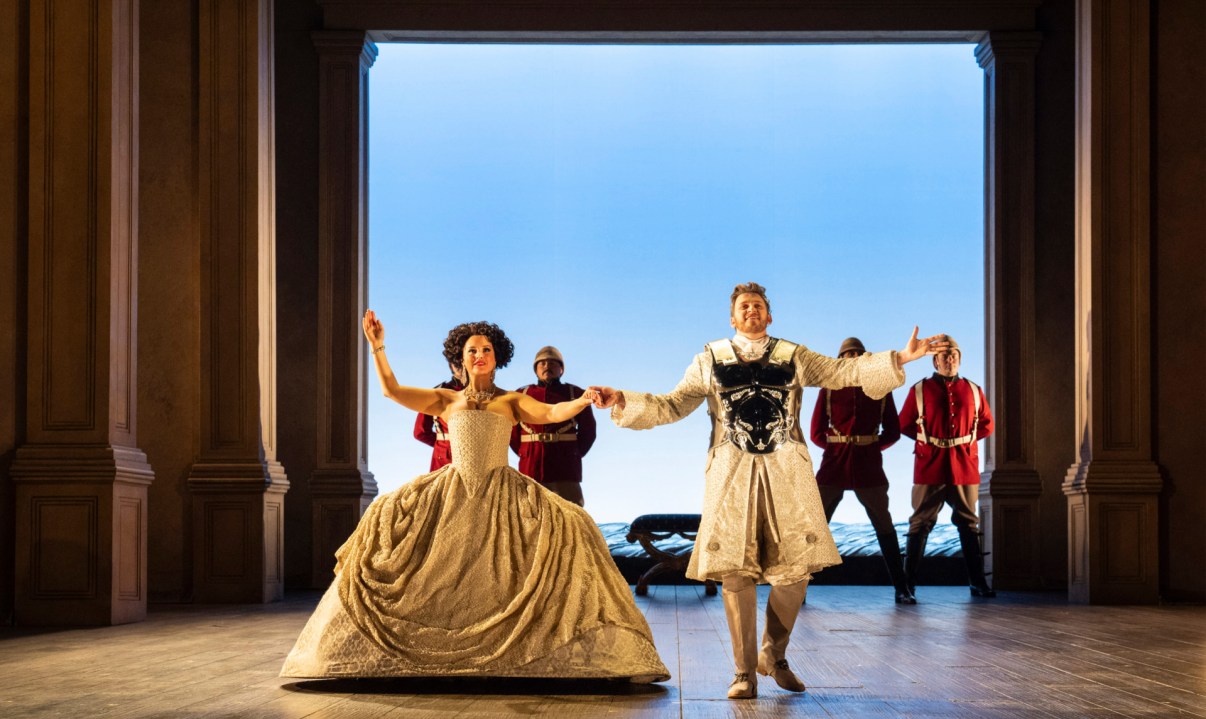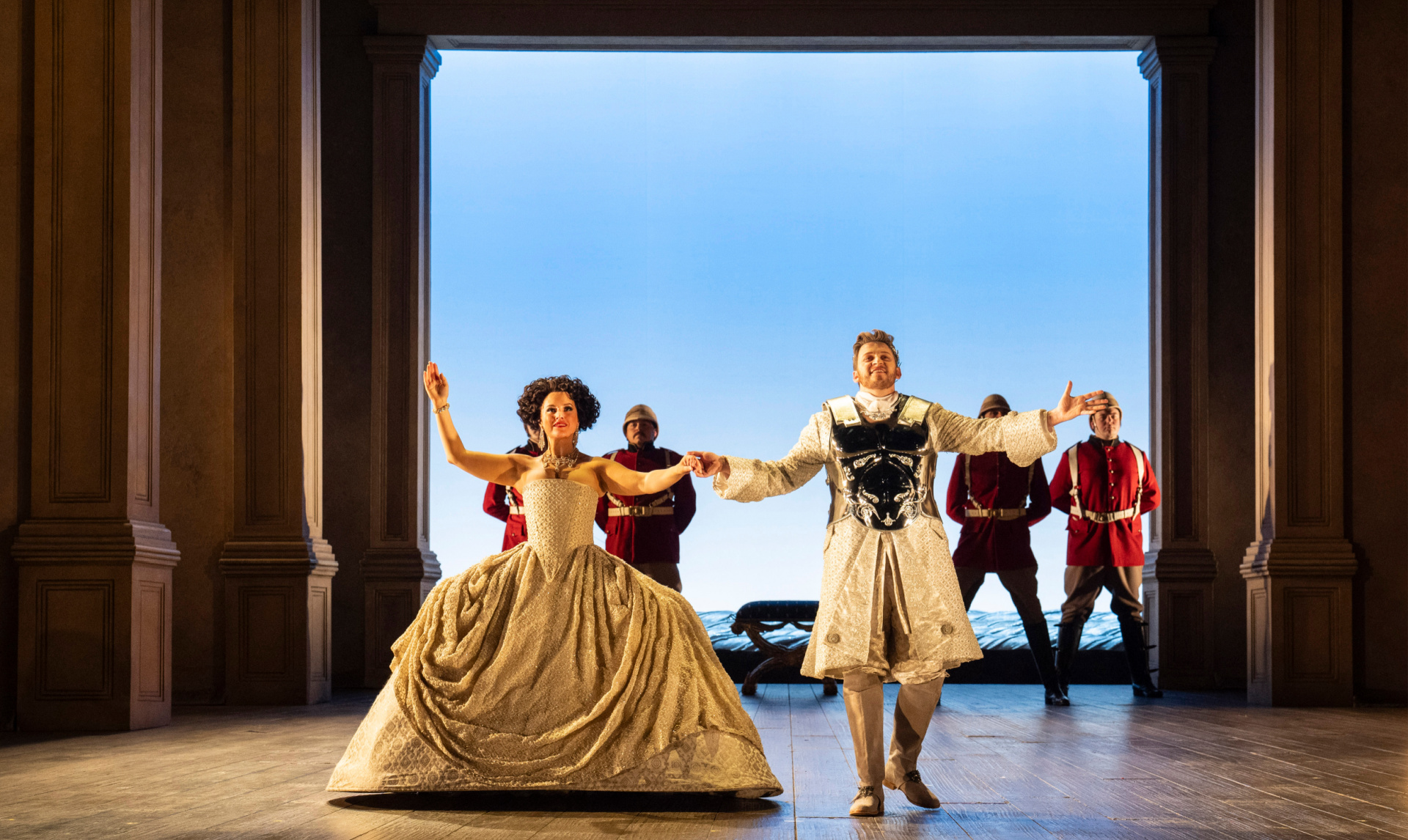A classic opera production ages like wine. When David McVicar’s staging of Handel’s Giulio Cesare first opened at Glyndebourne in 2005, Michael Tanner – writing in these pages – loathed it. ‘A quite hateful betrayal’ was how he described a production that is now widely regarded as a classic. It would be easy to brandish those words now he’s gone – ha ha, no one ever erected a statue to a critic – ignoring the truth that any first night review can only ever be a snapshot, and that the big story back then was the hyperactive, neon-lit debut of Danielle de Niese as Cleopatra. Tanner did predict that de Niese would do well out of it, though no one guessed that she’d end up marrying the owner of the theatre.
Still, I’d love to have heard his thoughts two decades later in the life of this production, now the rough patches have bedded in, raw emotions have deepened and ripened, and Cleopatra is played by an artist with the vocal beauty and dramatic range of the British soprano Louise Alder.
It’s all about alchemy and perspective. I wish Michael Tanner could have seen it one more time
Playful and girlish in her early scenes with the psychotic Tolomeo (Cameron Shahbazi – a deliciously toxic portrayal), by the start of act three Alder was singing with a concentrated, tragic eloquence that held the whole theatre in breathless silence. In between she was regal, flirtatious, and thrillingly sensual by turns; all conveyed in singing whose sweetness and expressive power admitted just the right amounts of brilliance and shade. Custom really could not stale her infinite variety.
Whether Alder’s performance was what brought the whole show into focus, it’s hard to say – again, good productions reveal new complexities with time – but it certainly provided a centre for an ensemble achievement that danced and sparkled (the choreography with which McVicar beguiles Handel’s lengthier flights is one of his happiest inspirations) without excluding darker emotions.








Comments
Join the debate for just £1 a month
Be part of the conversation with other Spectator readers by getting your first three months for £3.
UNLOCK ACCESS Just £1 a monthAlready a subscriber? Log in